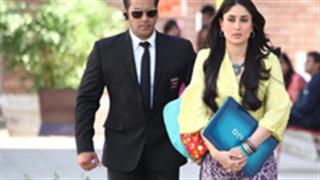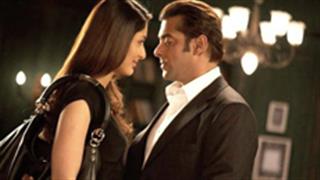Be it Aamir Khan taking revenge from the killer of his girlfriend in "Ghajini", Ajay Devgn fighting against corruption in "Singham" or Bollywood's poster boy Salman Khan saving his lady love in "Bodyguard", all these films with once a popular theme of good versus evil raked in the moolah at the box office by reaching out to pan-India.
"Yes, the quintessential format of a Hindi film has kind of made its entry again, where there is a hero, a villian, a heroine, glamour element and of course there is the main tussle between protagonist and antagonist," filmmaker Karan Johar told.
In an era when most films are targeting multiplex audiences, these films have given a new lease of life to single-screen theatres, especially in two- and three-tier cities, where the audiences find it difficult to relate to Hinglish, issue-based or designer dramas.
If "Wanted" revived single screens by generating 70 percent business, "Dabangg" and "Bodyguard" too did well in far-flung areas.
"'Wanted' definitely revived business in single- screen theatres, but now 'Bodyguard' is also going quite strong in single screens. Complete action masala films like 'Singham', 'Wanted' and 'Bodyguard' stay for eight-nine weeks. Films like 'Not A Love Story' just came and went. They don't stay," Ranjan Sinha, Patna-based distributor, told.
 Pointing out the reason behind their success, Vinod Mirani says that it clicked because audiences identify with such subjects.
Pointing out the reason behind their success, Vinod Mirani says that it clicked because audiences identify with such subjects."That is the way the Indians like their films, a complete drama with hero, villain, romance, family and entertainment in the form of some comedy, dance and music," Mirani told.
"'Wanted', "Ghajini", "Dabangg", 'Ready', 'Singham' as well as the film that came 1960 onwards followed this formula and enjoyed a greater success ratio because the audience identified with them," he added.
The latest of them all is the "Bodyguard", which has smashed box-office records by earning a record Rs.22 crore net on the very first day. Rohit Shetty's "Singham" starring Ajay as an honest cop and debutant Kajal Aggarwal is another example of typical boy meets girl and good wins over evil theme. The film has earned over Rs.100 crore.
"People have liked films with strong hero character, where the hero takes charge and good wins over evil. Such films resonate with the audience. They loved watching an honest cop Bajirao Singham's (Ajay) fight to clean the system because they could connect with it," said Priti Shahane, chief marketing and strategy officer of Reliance Entertainment, which distributed the film.
Salman's "Dabangg" and "Wanted" turned out to be a goldmine as they had all the ingredients of a hardcore masala flick, whether it was a sweet romantic interaction with the female co-stars Sonakshi Sinha and Ayesha Takia respectively or Salman packing a punch on the goons, and some comedy.
Even Aamir impressed with his heroic antics in 2008 film "Ghajini".
"Feel good romance, comedies and action and an odd thriller are best bets for films," said Mirani.
 While "Wanted" earned Rs.91 crore at the box-office in 2009, "Dabangg" became the highest grossing film of 2010 by earning Rs.145 crore and 2011 seems to be maintaining the trend with the success of films like "Ready" (Rs.120 crore), "Singham" (over Rs.100 crore) and "Bodyguard".
While "Wanted" earned Rs.91 crore at the box-office in 2009, "Dabangg" became the highest grossing film of 2010 by earning Rs.145 crore and 2011 seems to be maintaining the trend with the success of films like "Ready" (Rs.120 crore), "Singham" (over Rs.100 crore) and "Bodyguard".Karan Johar, whose "Agneepath" falls in the same category, feels "Indian cinema is actually going in two different directions"
"While you have the mainstream endeavours in films like 'Dabangg', 'Singham', which is what trade calls return of the single screen, and simultaneously there is a film like 'Zindagi Na Meligi Dobara', 'Peepli Live', 'Taare Zameen' Par', they have had a great amount of 'alternative kind of cinema' and is working tremendously at the box-office."
Mirani says the recent masala films boast of fresh treatment.
"What is different now is the treatment and the technique; special effects make all the difference. The fight scenes for example are humanly impossible but yet made to look plausible with effects, Dolby sound and such things give an edge to films now," he said.



















